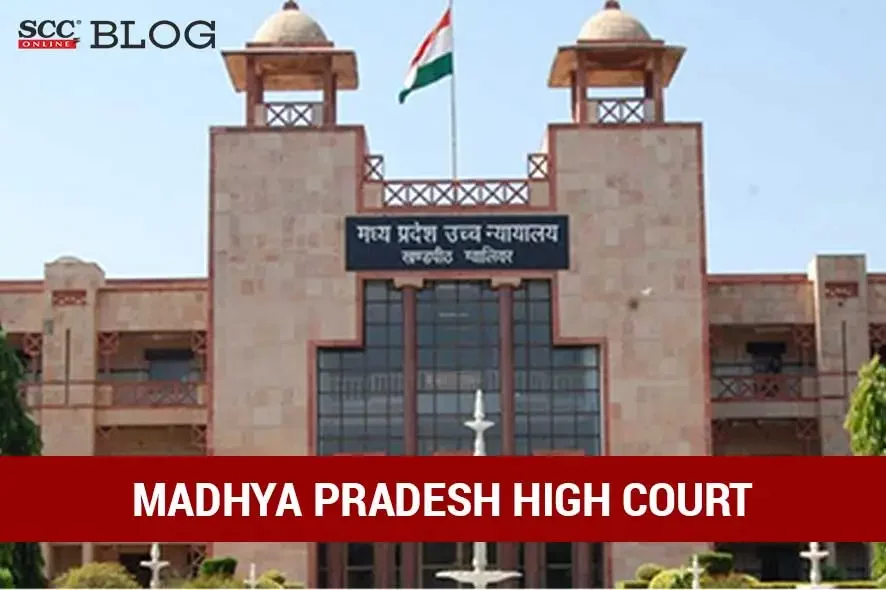Madhya Pradesh High Court | A single judge bench comprise of Sanjay Dwivedi,* J., held that held that an FIR can be quashed if there are feeble chances of ultimate conviction and no useful purpose is likely to serve by allowing such prosecution to continue and quashed FIR lodged under S. 377 of the Penal Code, 1860 (IPC) against the petitioner, Raghavji.
Factual Matrix
In the instant matter, a complaint was lodged in 2013 against the then minister, Raghavji-petitioner under S. 377 of the IPC alleging that the petitioner was doing unnatural sex with him for three years in return for getting him employed. The petitioner preferred the present petition under S. 482 of the Criminal Procedure Code, 1973 (CrPC) for quashing the impugned FIR on the ground that the impugned FIR is malicious and the offence under S. 377 of IPC is not made out.
Moot Point
✓ Whether the present case is a case of consent and an offence under S. 377 of that IPC is made out against the petitioner?
✓ Whether the conduct and statement of complainant are sufficient to reaching a conclusion that instant prosecution is malicious?
Law Point
✓ S. 377 of the IPC – Unnatural offences
“Whoever voluntarily has carnal intercourse against the order of nature with any man, woman or animal, shall be punished with [imprisonment for life], or with imprisonment of either description for a term which may extend to ten years, and shall also be liable to fine.
Explanation — Penetration is sufficient to constitute the carnal intercourse necessary to the offence described in this section.”
Court’s Observation
The Court observed that though the inherent power and jurisdiction provided under S. 482 of the CrPC has to be exercised sparingly and carefully with caution by the High Court but at the same time S. 482 of the CrPC empowers the High Court to prevent the abuse of process of court, therefore, the High Court can quash a proceeding, in exercise of its inherent power under S. 482 of the CrPC, if such a proceeding is “frivolous, vexatious or oppressive”.
While relying on Rajiv Thapar v. Madan Lal Kapoor, (2013) 3 SCC 330, the Court rejected the objection of the respondent to the present petition that the initial case was filed in 2016 and trial commenced and some of the witnesses have been examined, therefore, it is not proper to interfere in the matter and quash the FIR.
The Court relied on Navtej Singh Johar v. Union of India, (2018) 10 SCC 1, where it was held that “Any act of the description covered under Section 377 IPC done between two individuals without the consent of any one of them would invite penal liability under Section 377 IPC” and observed that the complainant has nowhere mentioned in the complaint that he had opposed the alleged abuse by the petitioner that was going on for three years; moreover, there was no restriction on the complainant to enter or leave the petitioner’s house. The Court further observed that even if the allegations made by the complainant are considered to be true, there is no evidence to prove that force was used by the petitioner.
The Court observed that in the light of existing circumstances, both the petitioner and complainant are as consenting party and therefore, no offence under S. 377 of the IPC is made out. While relying on various judgments of the Supreme Court, the Court observed that “this Court exercising the inherent jurisdiction for securing the ends of justice can quash the prosecution because considering the circumstances if prima facie this Court is of the opinion that there are feeble chances of ultimate conviction and no useful purpose is likely to serve by allowing the criminal prosecution to continue, the proceeding can be quashed.”
In the light of facts and circumstance of the case, arguments advanced, material placed on record and authorities cited, the Court opined that the present complaint is “sugarcoated with ill-motive, made to belittle the image in society and casting a stigma on the name of high-up-place person, who also holds important portfolio in the State of M.P.”
The Court observed that complainant’s admission regarding preparation of evidence, fact that the complaint was made after working together with the leaders of rival parties, complainant not being specific about threat given by the petitioner or conduct of the complainant as has been described by his father that the complainant is not mentally stable and has a habit of levelling false allegations against high ranking members of the society, clearly indicates that the complaint is maliciously instituted with an ulterior motive for wreaking vengeance due to private and personal grudge on the petitioner.
Court’s Verdict
While allowing the present petition, the Court quashed the FIR registered against the petitioner for the offence punishable under Ss. 377, 506 and 34 of the IPC on the grounds that offence under S. 377 of the IPC not made out as it is a case of consent, moreover, in the present matter the prosecution of petitioner is malicious.
[Raghavji v. State of M.P., 2023 SCC OnLine MP 1633, order dated 14-06-2023]
*Judgment by Justice Sanjay Dwivedi
Advocates who appeared in this case :
Shri Shashank Shekhar, Senior Advocate with Shri Bhupesh Tiwari, Counsel for the Petitioner;
L.A.S. Baghel, Government Advocate, Counsel for the Respondent No. 1/State.









